The School
About the School
Who We Are
Our Headquarters
Sponsorship
Alumni
Information
Our Commitment
Social Impact Projects
Sustainability
Studies
Encounter of Santander
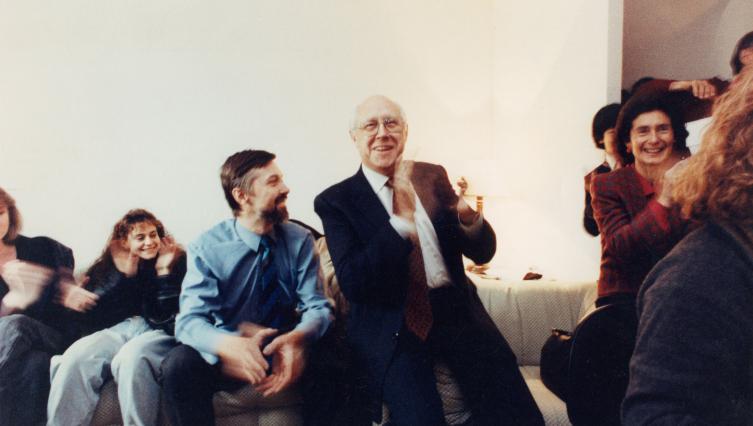
The Reina Sofía School of Music was founded by Paloma O’Shea with the aim of establishing in Spain a centre of high professional specialisation which the most talented young musicians from all over the world could attend, in order to study with renowned international professors and bring music closer to society. The School opened its doors in September 1991 in Pozuelo de Alarcón, Madrid, with four outstanding professors: Dmitri Bashkirov, Zakhar Bron, Daniel Benyamini and Ivan Monighetti. In recruiting these professors, Paloma O’Shea was advised by great musicians Mstislav Rostropóvich, Zubin Mehta, Yehudi Menuhin and Alicia de Larrocha. Equally decisive was the support of Her Majesty Queen Sofía, who gave her name to the School, became its Honorary President and currently follows its evolution very closely.
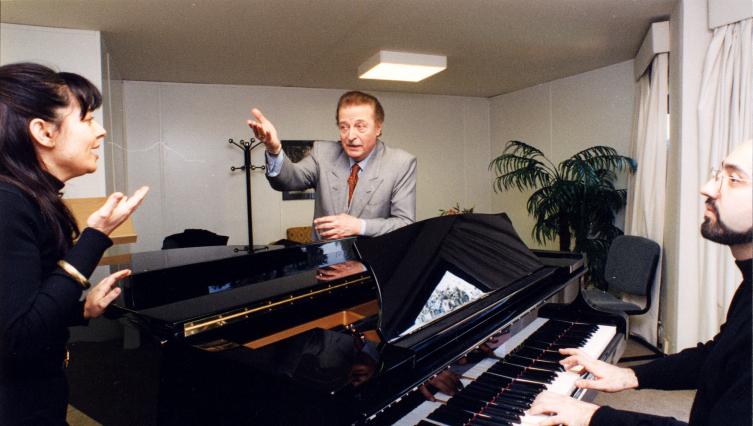
The fifth professor to join was not an instrument teacher but a chamber music specialist, Piero Farulli from the Quartetto Italiano, which shows the importance ensemble music has always had at the School. Double bassist Ludwig Streicher completed the strings department and Alfredo Kraus inaugurated voice. Winds came gradually; first, oboe with Hansjörg Schellenberger; then, horn with Radovan Vlatković; soon after, the rest of the woodwind: flute with Jacques Zoon, clarinet with Michel Arrignon and Pascal Moraguès, and bassoon with Klaus Thunemann and Gustavo Núñez. Trumpet has recently been added with Reinhold Friedrich.
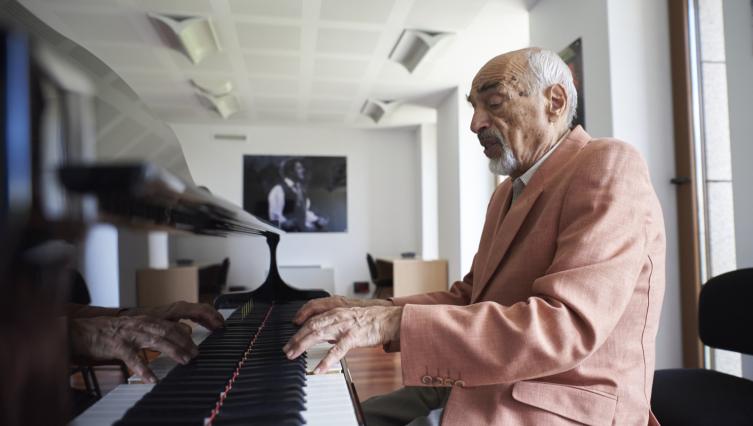
Throughout the years, the faculty was enriched by other great professors: singers Teresa Berganza, Tom Krausse and Ryland Davies, violinists José Luis García Asensio, Marco Rizzi and Ana Chumachenco, violists Gérard Caussé, Diemut Poppen and Nobuko Imai, cellists Natalia Shakhovskaya and Jens-Peter Maintz, double bassists Rainer Zepperitz and Duncan McTier as well as pianist Galina Eguiazarova. Once again, the great chamber musicians stand out: Márta Gulyás, Rainer Schmidt (Hagen Quartet), Walter Levin (LaSalle Quartet), Heime Müller (Artemis Quartet), Menahem Pressler (Beaux Arts Trio), Ralf Gothóni and Günter Pichler (Alban berg Quartet. As a culmination of such interest in chamber music, the School launched in 2006 the International Institute of Chamber Music in Madrid which, under the direction of professor Günter Pichler, has turned Spain into a centre of reference for chamber music education and performance.
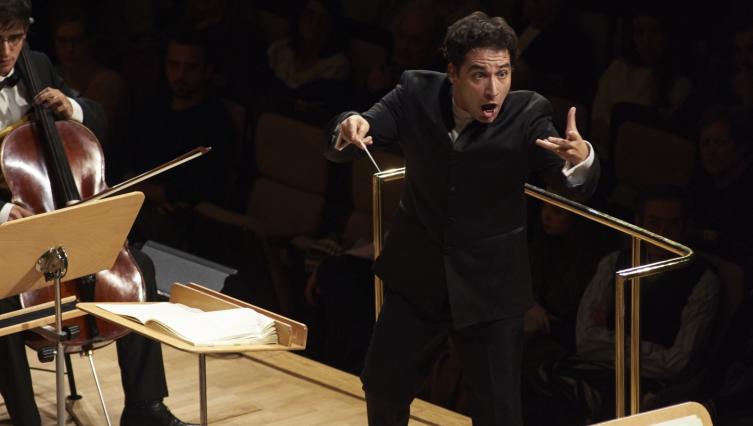
The School has always taken special care of its orchestral programme by bringing inspiring maestros to encourage its students: Zubin Mehta, Lorin Maazel, Yehudi Menuhin, Sir Colin Davis, Luciano Berio, Jordi Savall, Vladimir Ashkenazy, Péter Eötvös, and many others. Currently, maestros Andrés Orozco-Estrada and András Schiff are principal conductors of the Freixenet Symphony Orchestra in its two formats, Symphony and Chamber, respectively. The School also has the Viesgo Camerata and the Sinfonietta, which covers contemporary repertoire conducted by renowned specialists. The more than 20 commissions to composers made through the Music for a School Programme and the creation of the Chair of Composition, scheduled for the 2020-2021 academic year, are also proof of a sustained commitment to contemporary creation.
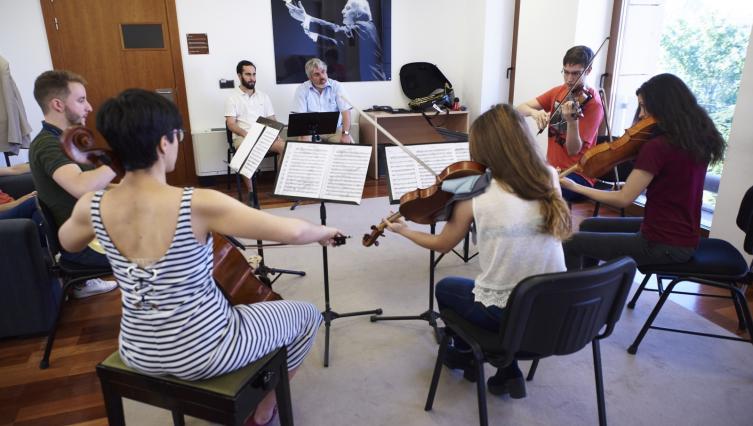
The Reina Sofía School of Music soon achieved international renown – British magazine The Strad (July 2001) described it as “one of the best schools in Europe, if not the world” – as a result of the pedagogical principles it has applied since its foundation: admission of students and professors solely on merit, an ambitious scholarship programme that leaves no one out of the School for financial circumstances, freedom of teaching, individualised study plan and a large number of concerts considered to be an extension of the academic activity.
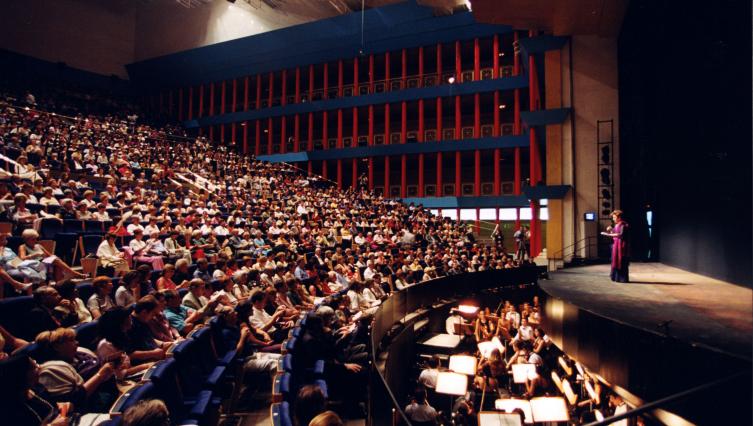
In 2001 the School launched the Encounter of Music and Academy of Santander, a combination of a concert festival and a summer course that, since then, has filled the city and more than 20 towns in Cantabria with music during the month of July. The Encounter brings together in Santander outstanding professors of each instrument with 60 students, selected one by one through auditions in the best schools of Europe. In the evenings, students and professors share the stage, on equal terms, to perform very special chamber music concerts that combine the best classical repertoire with unusual pieces. Maestros such as John Corigliano, Sofía Gubaidulina, Krzysztof Penderecki, Péter Eötvös and Luis de Pablo have participated in the event as resident composers. The Encounter counts on the strong support of Cantabria’s Government and the collaboration of the Santander City Council.
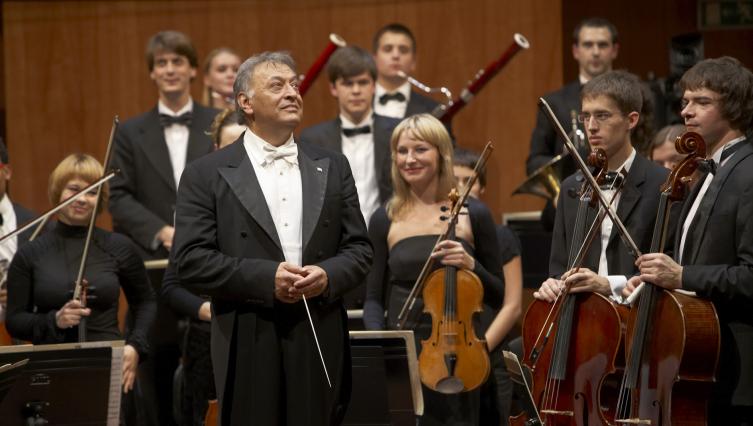
The 2008-2009 academic year was an important turning point for the School, with the move to a definitive location in the institutional and cultural heart of Madrid, between the Palacio Real and the Teatro Real. Under the presidency of Their Majesties King Juan Carlos and Queen Sofía, and before the entire royal family, Zubin Mehta inaugurated the Sony Auditorium of the School with the Freixenet Orchestra performing a Mozart’s programme.
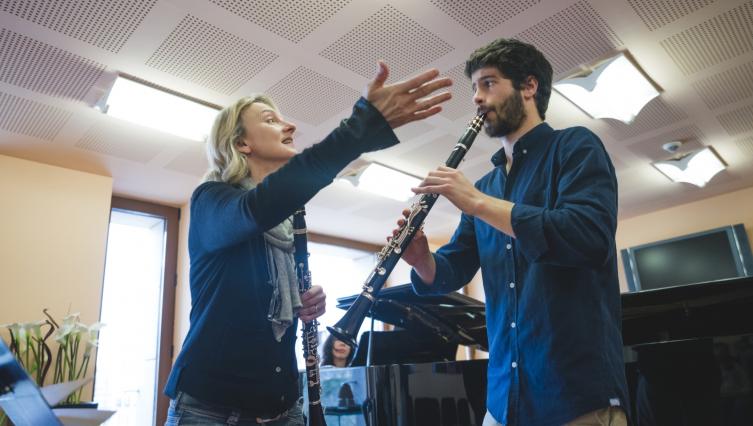
In 2016, coinciding with its 25th anniversary, the School began to offer the Higher Degree in Music within the Bologna European framework, which was joined two years later by the Master’s Degree in Music Performance, while maintaining the private diploma that provides professors the academic freedom and individualisation, hallmark of the School. That year also saw the birth of the Alumni programme that strengthens the link of the Alumni with the institution as well as between the former students themselves; the Friends Programme and the Open Day that brings the School closer to society. Shortly before this, the International Circle was created, bringing together important figures from different countries with the aim of supporting the School and promoting it worldwide.
The School was at the forefront of recognising the value of the digital world for musical education, and in the past years has launched various projects to spread its vast audiovisual archive, comprised of masterclasses by renowned professors and concerts by its students. In 2006, the School launched Magister Musicae, a virtual school with more than 3000 hours of classes, and in 2010 Classical Planet was born, which contained concerts, masterclasses, livestreams and documents. Both inicatives have resulted in the creation of Canal Escuela, that provides free access to the best media content of the School from 1997.
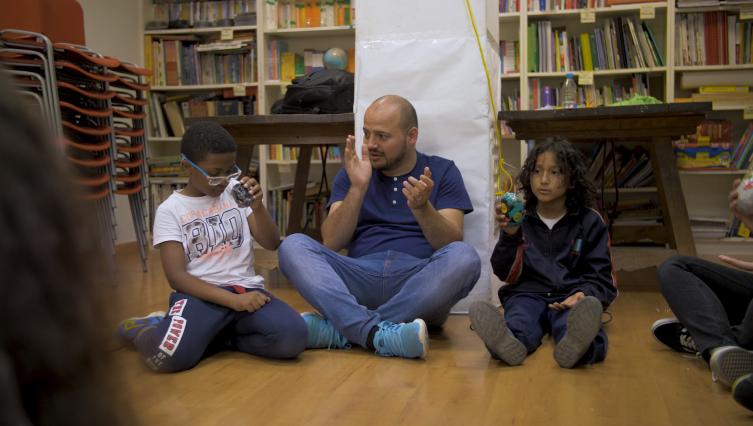
In the last few years different projects have been developed, such as the Entrepreneurship and Social Innovation Programme and the Music and Leadership and Enjoying Music workshops, with the goal of preparing our students for the ongoing changes in the music world and to broaden the scope of the School's social relevance. From 2017, the School organises every year its Summer Camp, a cultural and musical immersion programmefor 12 to 17-year-olds from all around the world. The international spirit of the School is also present in its active participation in various national and European associations, such as the European Network of Opera Academies (ENOA), the Association Européenne des Conservatoires (AEC) and the Asociación Española de Fundaciones (AEF). Its most recent project, New Skills 4 New Artists, was born in 2019 with the goal of facilitating the attainment of digital, business and technological skills by musicans beginning their professional careers.